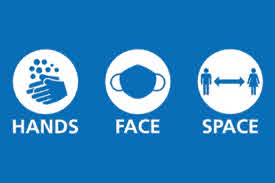When will general practice get back to normal?
This is a question we are increasingly being asked. The honest answer is we really don’t know, but it is unlikely to be for some time to come. Here are some of the reasons why:
Appointments
On the 12th of April 2021 NHS England introduced its latest version of its Standard Operating Procedures for General Practice. Remote and telephone triage remains the primary guidance for general practice.
This means all GP appointments must be carried out by an initial telephone call first, allowing the doctor to make a clinical assessment as to whether a face-to-face appointment is appropriate, or whether the problem can be dealt with by a phone or video call.
How does this affect the practice?
- We receive significantly more incoming phone calls which has placed a huge burden on telephone waiting times.
- This slows down GPs, as patients who need to be brought to the surgery will have had “two” consultations where previously they may only have had one.
Managing the building
Our GP surgery is not like your local supermarket. The people we bring to the surgery are unwell, and the risks to patients sitting in a waiting room are potentially higher than at other venues. In order to maintain your safety, we must follow strict rules regarding the number of patients in the waiting room. We also bring high-risk patients down at different times of the day, or into different parts of the building, meaning we have to be adaptive with our appointments each day.
COVID vaccination programme
Our programme started in Dec 2020 and is being delivered as joint project with our neighbouring practices through our Primary Care Network, Waterside PCN. We are pleased to say that almost all at risk patients and patients over the age of 50 have now had their first vaccination. Nationally PCNs have been delivering approximately 75% of vaccinations, and the remainder are done by the national vaccination sites.
However, the following still needs to happen:
- All at risk patients and adults over 50 (Groups 1-9) need a second vaccine (in progress).
- All adults 16-50 not in an at risk group (Groups 10-12) need a first vaccine (in progress through a phased approach).
- All adults 16-50 not in an at risk group (Groups 10-12) will need a second vaccine 12 weeks after the first.
- All children will need vaccinating, probably twice, once a vaccine is approved.
- A booster vaccination programme will start in the Autumn (likely to be for all at risk patients and those over 50 but details have yet to be formally announced. Groups 1-9).
This means we are likely to be running vaccination clinics for the rest of this year.
Whilst we do have a group of volunteers who are assisting with the clinics, the local practices still need to supply administrative staff, nurses, and GPs at these clinics. This means that on the days these clinics run, we have fewer staff at the practice to answer phones and see patients.
Doctors, nurses, and administrative staff are attending these clinics on their days off, at weekends, and when they are on holiday to try to minimise the impact on the surgery and our patients.
Summary
Given all the factors above it is unlikely that general practice will be returning to what we all remember as being normal for some time to come. We are all looking forward to that day, but in the meantime we ask that you understand the burdens and pressures on your local GP services, and to work with us to try and make things run as smoothly and swiftly as possible.
Remember:
- We are open.
- We will always see you if it’s clinically necessary.
- Telephone appointments are available online as well as via a call to the reception team.
- We have reinstated long-term condition reviews.
- All cancer screening is still taking place, so please attend if you are called.
